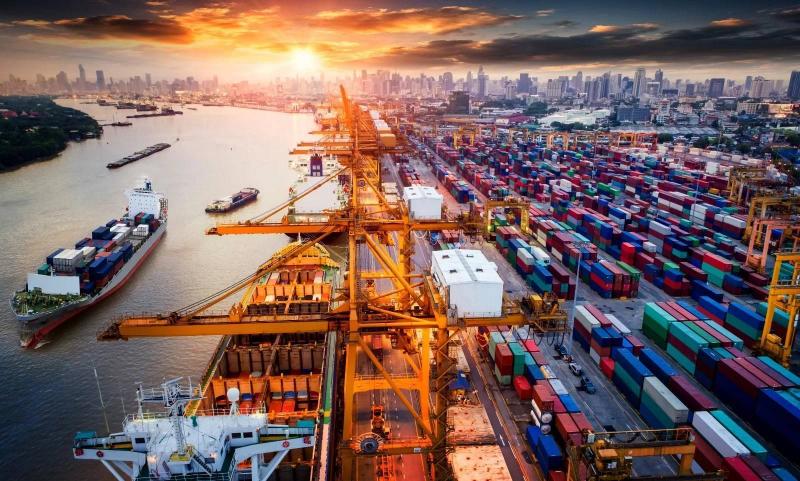The logistics sector has outpaced growth among 10 promising sectors in the second quarter of this year, with the number of existing commercial registrations reaching 11,928 thousand, marking a growth rate of 76% compared to the same period last year, which recorded 6,742 commercial registrations. The promising sectors contribute to supporting the GDP and providing business opportunities for growth and expansion in partnerships.
A report from the Ministry of Commerce for the second quarter of this year revealed 10 promising sectors that represent opportunities launched by the Kingdom's Vision for both local and foreign businesses. The logistics sector led the growth in registrations of promising existing sectors by 76%, followed by artificial intelligence technologies at 53%, container handling services at 48%, cloud computing services at 43%, pharmaceuticals and drug products manufacturing at 34%, urban and suburban passenger transport at 31%, electronic games manufacturing at 29%, arts, entertainment, and recreation at 24%, short-term accommodation at 22%, and mining and quarrying at 18%.
In the second quarter of this year, the logistics sector recorded growth of (11,928 thousand current records), with the Riyadh region leading in the growth of existing logistics records, totaling 5,802 records at 49%. Makkah ranked second with a total of 3,170 records at 27%, followed by the Eastern region with a total of 1,465 records at 12%, Qassim at fourth with a total of 347 records at 3%, and Al-Madinah at fifth with a total of 323 records at 2.70%.
Container handling services ranked third among the fastest-growing sectors with a growth of 48% following a significant increase in operational efficiency in the Saudi port sector, where the number of existing container handling records reached 2,457 records compared to 1,658 in the same period last year. The Riyadh region dominated the existing records with a total of 1,027 records at 42%, followed by Makkah with 738 records at 30%, the Eastern region with 405 records at 16%, Al-Madinah with 79 records at 3%, and Qassim with 59 records at 2%.
Moreover, the Kingdom achieved a global leap in the connectivity index of maritime navigation with international shipping lines, according to a report issued by the United Nations Conference on Trade and Development (UNCTAD), ranking 16th globally among 187 countries, achieving a score of 77.66 this year, exceeding the target of 75 set for 2030. The number of shipping lines also increased to 25, enhancing the Kingdom's connection to global markets and international trade movement.
Furthermore, the urban and suburban passenger transport sector ranked sixth among the top ten growing sectors in the Kingdom with a growth rate of 31% for the second quarter of 2024. The land transport sector underwent major reforms, including market liberalization, improving user experience, and enhancing competitiveness through the launching of intercity bus services, which supported mobility and strengthened connectivity between provinces and regions, while providing additional modern and eco-friendly transport options, contributing to supporting economic infrastructure and reinforcing economic diversity in accordance with Vision 2030.
It is noteworthy that the transport and logistics services system has witnessed a series of structural and operational reforms in recent times, achieving the objectives of the national transport and logistics strategy. The Kingdom jumped 17 places in the global logistics performance index issued by the World Bank to rank 38th, enhancing the efficiency of the logistics sector and supply chains. The rate of contributions from global and local private sectors in investment and establishing major logistics areas in Saudi ports increased to 12, which supports the capabilities of the logistics sector and enhances economic growth.




